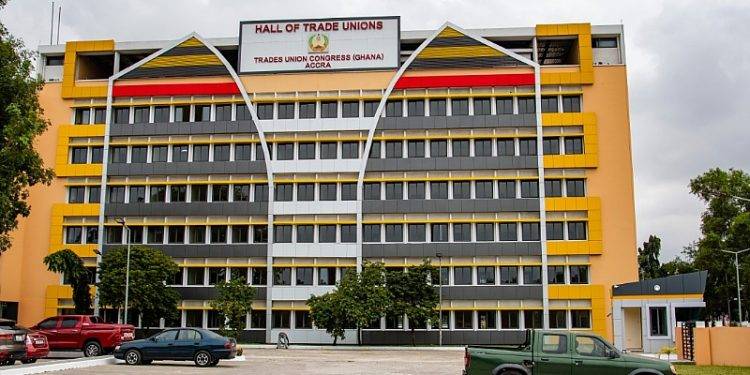The Trade Union Congress has sounded an alarm over the increasing number of skilled Ghanaians leaving the country for better opportunities abroad, warning that the trend poses a significant threat to national growth. Speaking at a labour forum held in Accra, the Deputy Secretary-General of the TUC, Dr. Kwabena Otto, called on the government to take swift action to improve working conditions across all sectors to retain talent and protect Ghana’s future workforce.
Dr. Otto emphasised that the current wage system in the country does not reflect the cost of living and makes it difficult for many to lead dignified lives. According to him, one of the main drivers behind the ongoing brain drain is the low income earned by professionals, which is not sufficient to meet even the basic needs of a family. He noted that a fair wage should not only support the individual worker but also sustain their household.
At the forum, Dr. Otto pointed out the distinction between the minimum wage and the living wage, explaining that while the minimum wage is designed for an individual, the living wage takes into account the responsibilities of workers to their families. He argued that any salary earned by a worker must be enough to enable them to meet family obligations without falling into poverty.
The labour leader went on to argue that the solution lies in raising the minimum wage to a level that guarantees financial stability for workers. He insisted that this would not only address poverty among the working class but also enhance productivity, economic resilience, and reduce the urge among professionals to migrate in search of better prospects.
This message comes at a time when Ghana, like many other developing nations, is facing the growing challenge of losing its most experienced professionals to countries in Europe and North America. The healthcare, education, and technology sectors, in particular, have seen a worrying number of workers leave in recent years. The situation, if left unchecked, could affect critical services and delay developmental goals.
The TUC is urging the government to treat this issue with the urgency it deserves. They believe that creating a favourable environment for employment, where professionals are appreciated and rewarded appropriately, is key to reversing the trend. Dr. Otto added that improving labour standards should be considered a national priority if Ghana is to maintain its human resource base and compete on a global stage.
The call by the TUC follows several other recent appeals from civil society groups and industry stakeholders urging reforms in Ghana’s labour market. With the nation’s development closely tied to the quality and availability of its workforce, many believe this is a defining moment for decision-makers to take concrete steps that will secure the future of work in the country.




No comments yet
Be the first to share your thoughts!